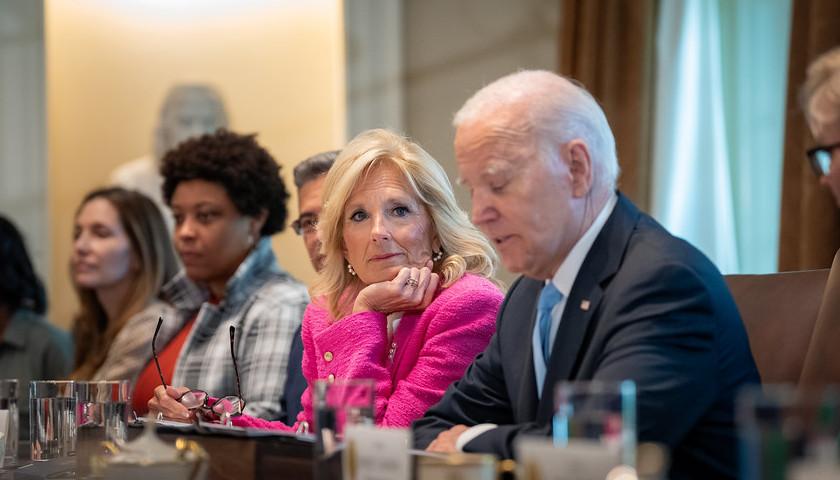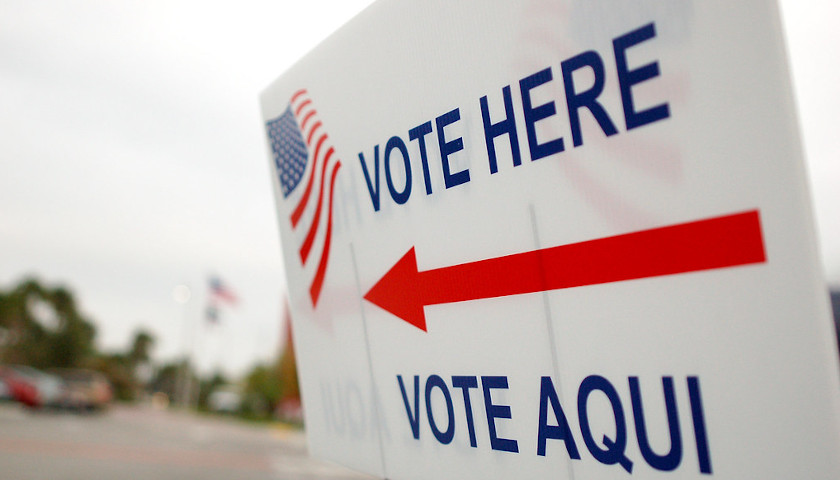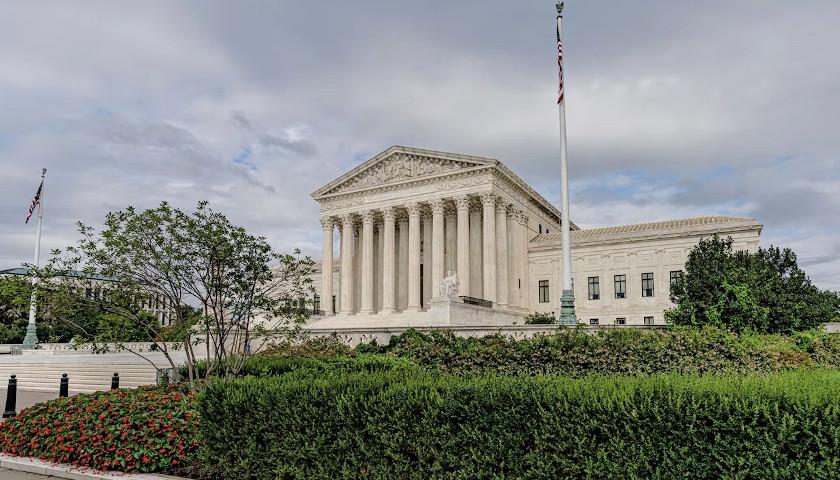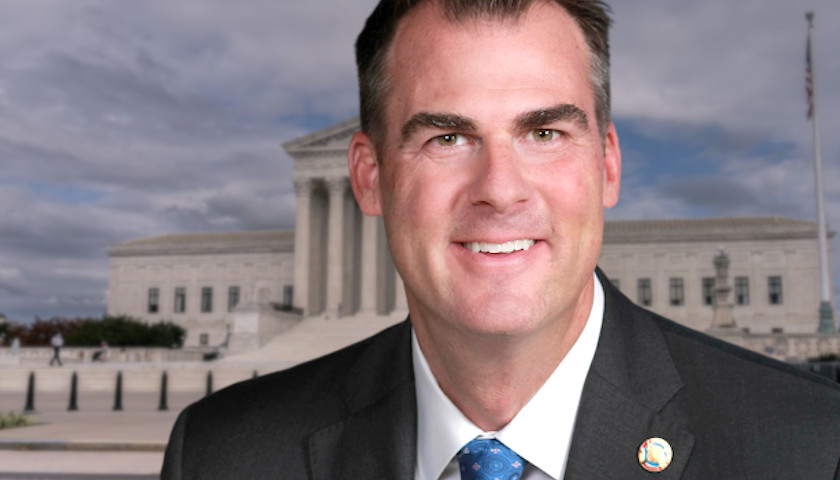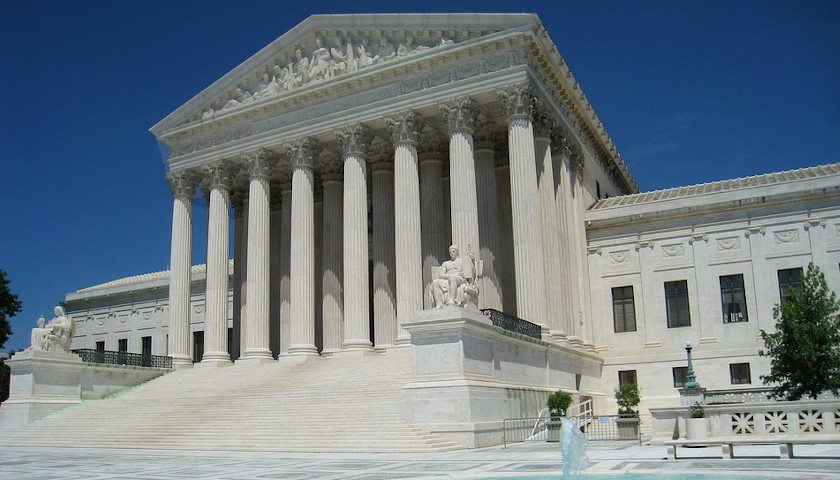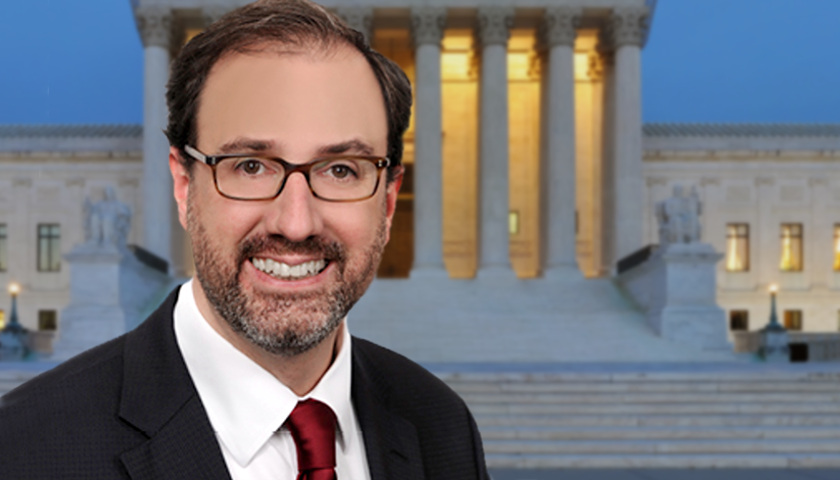The Supreme Court on Thursday ruled that Texas could enforce an immigration law that would allow local officials to arrest migrants suspected of entering the U.S. illegally.
Read the full storyTag: The Supreme Court
Commentary: Special Counsel Hur Says Biden ‘Elderly Man with Poor Memory’
The same week Joe Biden publicly confused two European leaders with their deceased predecessors and passed on the traditional softball Super Bowl Sunday interview, a new report from Special Counsel Robert Hur described the president as “a sympathetic, well-meaning, elderly man with a poor memory.”
The confluence of events raised further questions about the mental acuity of the 81-year-old executive, doubts that Biden did little to dispel in a defiant session with the press at the White House Thursday evening. Biden took particular umbrage with what he described as “extraneous commentary” contained in the report.
Read the full storyCalifornia County Sued over Non-Citizen Voting Records as States Diverge on Letting Foreigners Vote
A California county has been sued by an election integrity watchdog over not making non-citizen voting records available while states are divided on whether non-citizens should be permitted to vote in U.S. elections.
Some states are allowing non-citizens to vote in local elections while others are prohibiting it. Alameda County in California is being sued for not producing voter registration and voting records of non-citizens.
Read the full storySupreme Court to Consider Whether Agency’s In-House Trials Violate the Constitution
The Supreme Court will consider next week whether the Securities and Exchange Commission’s (SEC) use of in-house judges violates the right to a jury trial guaranteed in the Seventh Amendment.
Congress empowered the SEC to use its own in-house administrative law judges (ALJs) to try cases brought by agency enforcement when it passed the Dodd-Frank Act following the 2008 financial crisis. George R. Jarkesy, who has been caught in the SEC’s administrative proceedings since the agency charged him with fraud relating to his investment activities in 2013, challenged that grant of power as unconstitutional.
Read the full storySCOTUS Returns Oklahoma’s Right to Prosecute Crimes on Native American Land
The Supreme Court ruled in favor of the state of Oklahoma Wednesday in a case that weighed whether a state can prosecute crimes committed by non-Native Americans against Native Americans on reservation land.
Oklahoma v. Castro-Huerta involved a non-Native American defendant Victor Manuel Castro-Huerta, who admitted to “severely” under nourishing his 5 year-old stepdaughter, a Cherokee citizen. The state charged Castro-Huerta and his wife for child neglect. Castro-Huerta’s sentence was 35 years in prison with a possibility of parole.
Read the full storySupreme Court to Hear Challenge to California Farmers’ Case Against Government-Sanctioned Invasion of Private Property
The U.S. Supreme Court has agreed to hear a case brought by the Pacific Legal Foundation on behalf of Cedar Point Nursery and Fowler Packing Company asking it to invalidate a California regulation requiring union employees to enter private property for roughly 360 hours a year.
The plaintiffs are suing the California Agricultural Labor Relations Board (CALRB), its chairman, two board members and executive secretary, arguing a state regulation allowing union organizers to access private property for the purposes of soliciting support violates the Fourth and Fifth Amendments to the U.S. Constitution. When doing so, the unions are authorizing “a seizure and taking of possessory interests in private property, including the right to exclude others,” the plaintiffs argue.
Read the full storyOhio’s Buckeye Institute Continues to ‘Fight Relentlessly’ in Minnesota Professor’s Union Case
Robert Alt, president of The Buckeye Institute, recently called on the U.S. Supreme Court to put an end to states forcing non-union members to pay union dues. The institute issued a press release after the Supreme Court denied to hear Kathy Uradnik’s case. After the certiorari was denied by the Supreme Court, Alt stated that his organization will take Uradnik’s case back to the U.S. District Court in Minnesota’s 8th district. “Unfortunately, today the high court passed on the opportunity to hear her case immediately, but it has given us another opportunity to seek justice by sending it back to the U.S. District Court where The Buckeye Institute will continue to fight relentlessly on Kathy’s behalf,” said Alt. The Public Employment Labor Relations Act (“PELRA”) has been in effect in Minnesota for over 20 years. The law requires that public employees pay union dues, even if they have opted to not be apart of said union. PELRA also asserts that any public employee is subject to representation by a chosen union representative and that no employee can confer with upper management. Liaisons may only occur between upper management and the union representative. Uradnik, a political science professor at St.…
Read the full story

